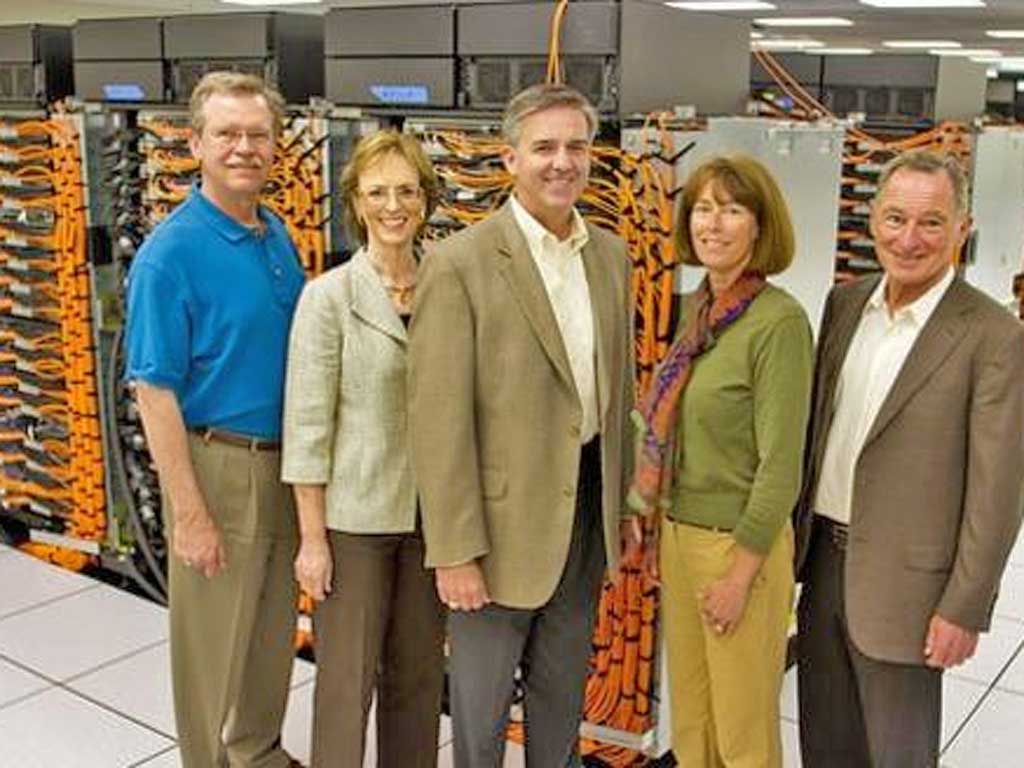Faster than a speeding petaflop: IBM flies past Japanese rival to win battle of the supercomputers with its Sequoia machine
American firm's Sequoia machine designed to simulate nuclear bomb tests

Your support helps us to tell the story
From reproductive rights to climate change to Big Tech, The Independent is on the ground when the story is developing. Whether it's investigating the financials of Elon Musk's pro-Trump PAC or producing our latest documentary, 'The A Word', which shines a light on the American women fighting for reproductive rights, we know how important it is to parse out the facts from the messaging.
At such a critical moment in US history, we need reporters on the ground. Your donation allows us to keep sending journalists to speak to both sides of the story.
The Independent is trusted by Americans across the entire political spectrum. And unlike many other quality news outlets, we choose not to lock Americans out of our reporting and analysis with paywalls. We believe quality journalism should be available to everyone, paid for by those who can afford it.
Your support makes all the difference.The US has regained the crown for having the world's fastest supercomputer thanks to a new machine so powerful that it can simulate nuclear bombs and power plant accidents – eliminating the need to conduct dangerous underground tests.
The government-funded IBM machine, called Sequoia, can do in eight hours the number of calculations that it would take the average laptop 20,000 years to complete.
It beat Japan's K Computer – manufactured by Fujitsu – to the top of the bi-annual Top500 list of the world's fastest machines, as compiled by a team of international computer science professors. The US dominated the list towards the end of the last decade but lost the top spot, initially to China, two years ago.
Sequoia's capabilities are measured at 16.3 petaflops – or quadrillions of computations per second – compared to the K Computer's 10.5 petaflops. A quadrillion is one thousand million million.
The publication of the Top500 list gives a big edge to IBM, which has four computers in the top 10. But the competition is expected to hot up because of the burgeoning demand for handling vast amounts of data.
"Today, the National Nuclear Security Administration uses Sequoia to research the safety, security and reliability of the United States' nuclear deterrent, replacing the need for underground testing," IBM's research director of deep computing systems wrote in a company blog post. But its use will soon be expanded to search for patterns across the natural sciences and to model the physical properties of materials at extreme pressures and temperatures.
It could also have commercial uses. Électricité de France (EDF), the world's largest utility company, is already using a similar, smaller IBM computer to improve the efficiency of its power plants and electricity grids.
Sequoia has a back-to-the-future feel for IBM, which became a technological powerhouse in the last century thanks to its manufacture of room-size computing machines. Its record-breaking new model takes up 3,500 sq ft at the Lawrence Livermore National Laboratory outside San Francisco, and is constantly tended by a team of technicians, but the hardware could not be further removed from the punch cards and vacuum tubes of the early computing era. It contains 1.5 million processing cores and its cooling system uses circulating water rather than air, making it one of the most energy-efficient supercomputers, as well as the fastest.
The US tally of three computers in the top 10 was actually down from the last Top500 list six months ago, when it had five. Germany and China have two each in the top 10. Japan, France and Italy have one.
Join our commenting forum
Join thought-provoking conversations, follow other Independent readers and see their replies
Comments